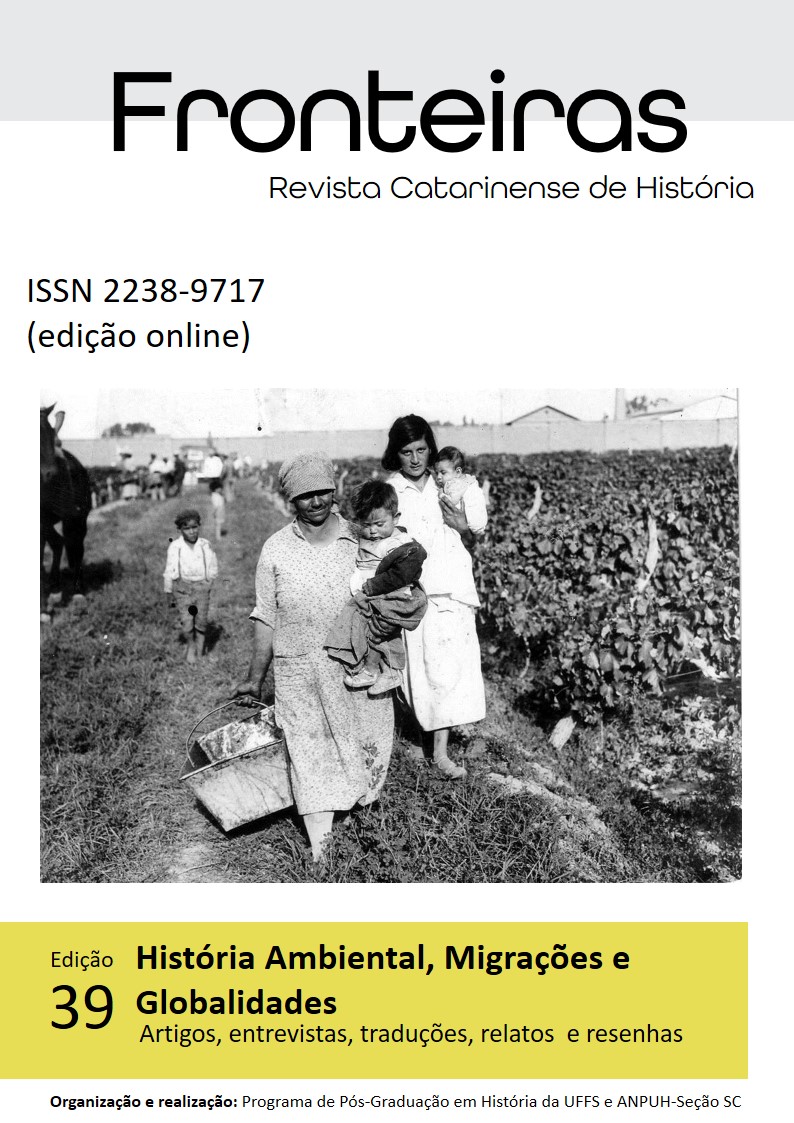Imigração alemã, ciência imperial e a tradução/colonização de ecologias locais do clima subtropical na América do Sul
DOI:
https://doi.org/10.29327/253484.1.39-6Palavras-chave:
Migração alemã, Clima, Subtropical, ClimatologiaResumo
Este documento discute o surgimento da ideia de clima subtropical na América do Sul sob as perspectivas imperial e tecnológica da climatologia alemã e do Império Habsburgo, além de seus entrelaçamentos com a colonização alemã na região entre os séculos XIX e XX. Estes dois Impérios da Europa central encorajaram estudiosos a construir o campo da climatologia científica a fim de abordar as agendas imperiais dentro de seus domínios ou onde quer que eles tivessem algum grau de influência. O sul da América do Sul tornou-se desde então um foco de pesquisa climática, já que os interesses imperiais se expandiram para a região do sul da América do Sul especialmente a partir da colonização florestal perpetrada por grupos falantes do alemão. Este estudo assume que, ao invés de ser uma noção climatológica naturalizada, o subtropical convergiu para uma gama de possibilidades de construção imperial, cuja perspectiva contribuiu para as origens do conceito climatológico. A ideia do subtropical na América do Sul implicou e confirmou as desigualdades raciais, sociais e ambientais e fundamentou o desenvolvimento ulterior da região. Em uma tentativa de descentralizar as narrativas eurocêntricas, a intenção deste artigo é colocar o subtropical em uma arena global de determinação, enfatizando as instâncias coloniais do clima e, ao mesmo tempo, evidenciando às resistências a este processo.



















